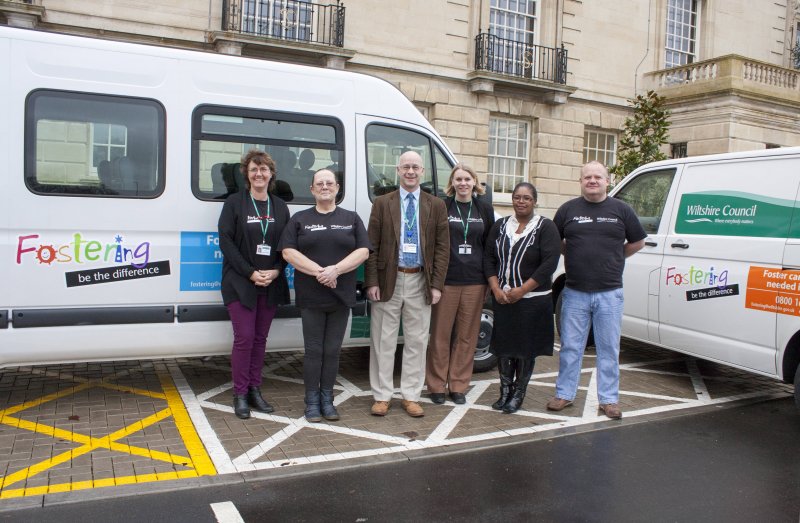Attracting and Keeping Carers - January 2014
This is a time of year when many of you will be launching new foster carer recruitment campaigns, tapping into those altruistic New Year’s resolutions. Research in the US suggests only 8 per cent of people achieve their new year goals. It is our job to make becoming a foster carer, particularly for those children with the most complex needs, compelling throughout the year.
It is with this in mind that this month’s IN FOCUS takes a look at the Fostering Network’s recently published recruitment targets, which will be the topic of discussion in the online chat on Thursday 30 January, 2.00-4.00pm.
Foster Care Fortnight workshops
The dates for the Foster Care Fortnight workshops have been agreed as follows:
- Tuesday 28 January: NCVO, London
- Thursday 6 February: The Carriageworks, Leeds
- Tuesday 11 February: The Studio, Birmingham
- Tuesday 18 February: The Fostering Network, Cardiff
All workshops are priced for members at £40 +VAT if you pay by credit card, £60 +VAT if you request an invoice. The rate for non-members of the Fostering Network is £150 per place.
Thank you to those of you who have booked so far. To book your place, or for more information, please see the events section of our website.
Scottish Government back Staying Put amendment
From April 2015 looked after children in residential, kinship and foster care in Scotland, who turn 16, will be entitled to stay looked after until they reach the age of 21.

The move to amend the Scottish Children and Young People’s bill follows the similar amendments to the English equivalent and is in addition to the Scottish Government’s recent commitment to provide support up to the age of 26-years-old for care leavers to help them move into independent living.
While delighted that the amendment will be made, the Fostering Network is disappointed that these changes won’t be taking effect until next year, and even then only gives 16-year-olds the right to stay, meaning that anyone older will miss out, in effect, three years behind England. We are asking the Scottish Government to reconsider to bring it forward to this April for all young people, in line with the changes in England.
Well done to those fostering services who have ‘ridden on the coat tails’ of the English announcement to get coverage in their area, including Child Action Northwest and Prepare to Foster. This is now an opportunity for colleagues in Scottish fostering services to do likewise.
Social Work Helper blog
Four ways you can prepare for foster care in your home comes from across the Atlantic, however the sentiment is relevant to all fostering services in the UK.
As our upcoming second Social Media guide will explain, using a blog format to provide some extra insight to the role of a foster carer, as shown in the secret foster carer blog, can complement the formal content on your website and shape a fuller picture of what’s required. If written by an existing foster carer or your foster carer recruitment officer, the content can soften the corporate image and open a channel for those interested to comment and ask questions anonymously. Blogging good practice also advises quantifying your points, such as six steps to becoming a foster carer, top five benefits of being a foster carer and in the article example above. This gives the reader a bitesize chunk to supplement other information available – bitesize being the operative word; “42 ways to prepare for panel” type articles are to be avoided!
Invest to save
Rather clumsy start to this article about Stoke on Trents City Council's fostering service, saved by the quote from the cabinet minister to put it all in perspective, but still invoking some interesting comments from readers.
The essence of this message is good, emphasising the need for local people to care for local children, wherever possible. This follows other recent releases from local authorities seeking to expand their inhouse foster carer provision to generate savings.
To reiterate what I’ve said before, we realise that it is not that simplistic and the independent sector still has a vital role to play in helping local authorities place looked after children with foster carers who will meet their needs. Communication between agencies is though required to ensure only the right foster carers who are needed are recruited.
Volunteer with Essex
This article from Essex caught my eye specifically for the call to action to ‘volunteer to foster a child’. This appears to deviate from fostering services more recent approach to professionalise the role of the foster carer, consult and communicate with them in their role in the team around the child and for some schemes, pay them for their skills, time and experience.
As per our findings from our Why foster cares care report this approach may chime with the Pioneer sense of community, but conflict with their sense of fairness, justice and equality.
This is the first example of the use of the term ‘volunteer’ that I’ve seen in foster carer recruitment. If anyone else has included this and can provide insight on the impact on recruitment, I’d be keen to hear from you – james.foyle@fostering.net
Transport advertising
 Wiltshire Council has been given the go-ahead to advertise for foster carers on the county’s council vans.
Wiltshire Council has been given the go-ahead to advertise for foster carers on the county’s council vans.
The fleet of six will be driving around the region, displaying the fostering team’s slogan to ‘Be the difference’ to help achieve the 50 new fostering families targeted for 2014.
This initiative doesn’t spread to the council’s refuse collection vehicles, an idea which I know divides opinion.
Redcar and Cleveland have taken this a step further with a bespoke fostering bus which, reminiscent of the old mobile libraries, tours the county inviting those in more remote areas to climb aboard and find out more.
IN FOCUS
In January of each year, the Fostering Network calculates the need for more foster carers across the UK to help raise the profile of fostering in the national press. The calculation is based on sector knowledge and the latest available statistics, including Ofsted data, the percentage increase of the number of children coming into care and, in the case of Scotland, where there currently aren't placement limits, a figure to allow for placement choice.
The headline figure of 8,600 across the UK is slightly less than the 9,000 calculated last year as fostering services continue to recruit well. Its purpose is to capture the attention of the media and help raise the profile of fostering at a time when a number of fostering services are seeking to recruit to local need; we recognise that it is not a case of raw numbers and that each fostering service will have different recruitment requirements, which we hope can be incorporated in local press activity.
Our news release is included as a resource for you below. How is this reflected locally? Are you running a campaign this January? Have you had enquiries as a result of the media coverage?
THOUSANDS OF NEW FOSTER FAMILIES NEEDED IN 2014
AT LEAST 8,600 new foster families are needed across the UK during 2014 to provide stable, secure and loving homes for the record numbers of fostered children, according to figures out today from the Fostering Network.
Tonight, almost 63,000 children will be living with over 52,500 foster families across the UK. More foster families are needed not only to replace the 12 per cent who leave each year, but to ensure that children who come into foster care find foster carers who are right for them, have the skills and qualities they need, and are available now.
More foster families are particularly needed to provide homes for teenagers, children with disabilities and sibling groups. Around 38,000 of the young people in care in England are aged 10 or older, and over 2,000 children with disabilities are currently in care because their parents couldn’t fully support their needs at home. Last year around 450 fostered sibling groups in England were separated, where the aim was for them to live together.
Without enough foster families willing and able to offer homes to these groups, some children will find themselves living a long way from family, school and friends, being split up from brothers and sisters, or being placed with a foster carer who does not have the ideal skills and experience to meet their specific needs.
Research by the Fostering Network in 2013 found that in the previous two years one in three foster carers had felt under pressure to take children – usually teenagers – who they were not trained or supported to look after. One in 10 had felt under pressure to take in a child, again usually a teenager, when they felt they had no more capacity. Two in five had looked after children temporarily because the fostering service could not find a suitable long-term home.
Fostering can be a challenging job, and when the match between foster family and child is not ideal, it becomes even more difficult. Too many fostering relationships break down as a result; in England alone there are over 4,000 unplanned endings of fostering placements each year and one in three children in care live in two or more homes across the 12 months. A wider pool of foster carers makes it more likely that fostering services can find the right foster home for each child, first time.
Robert Tapsfield, chief executive of the Fostering Network, said: “Children and young people come into care for a wide range of reasons, but all come needing professional, dedicated and compassionate support. Foster carers are remarkable people who open their homes to some of society’s most vulnerable and disadvantaged children and young people.
“Fostering services last year found over 7,200 new foster families in England alone, but recruitment remains an ongoing challenge. Fostering services across the UK need to attract a diverse range of foster carers who can meet the needs of children in care and who can offer as much choice as possible so that they can find the right home for each child, first time.
“We urgently need people who believe that they have the right skills and qualities to foster to come forward and make a long lasting positive difference to the life of a child. In particular, foster carers are needed to provide homes for teenagers and children with disabilities, and to help sibling groups stay together.”
An additional 7,000 foster families are needed in England, 200 in Northern Ireland, 850 in Scotland and 550 in Wales during 2014.
National and regional breakdown
| England | 7,000 |
| North East | 450 |
| North West | 1,200 |
| Yorkshire and Humber | 750 |
| East Midlands | 500 |
| West Midlands | 925 |
| East of England | 650 |
| London | 1,025 |
| South East | 925 |
| South West | 575 |
| Northern Ireland | 200 |
Scotland | 850 |
Wales | 550 |
| UK | 8,600 |





